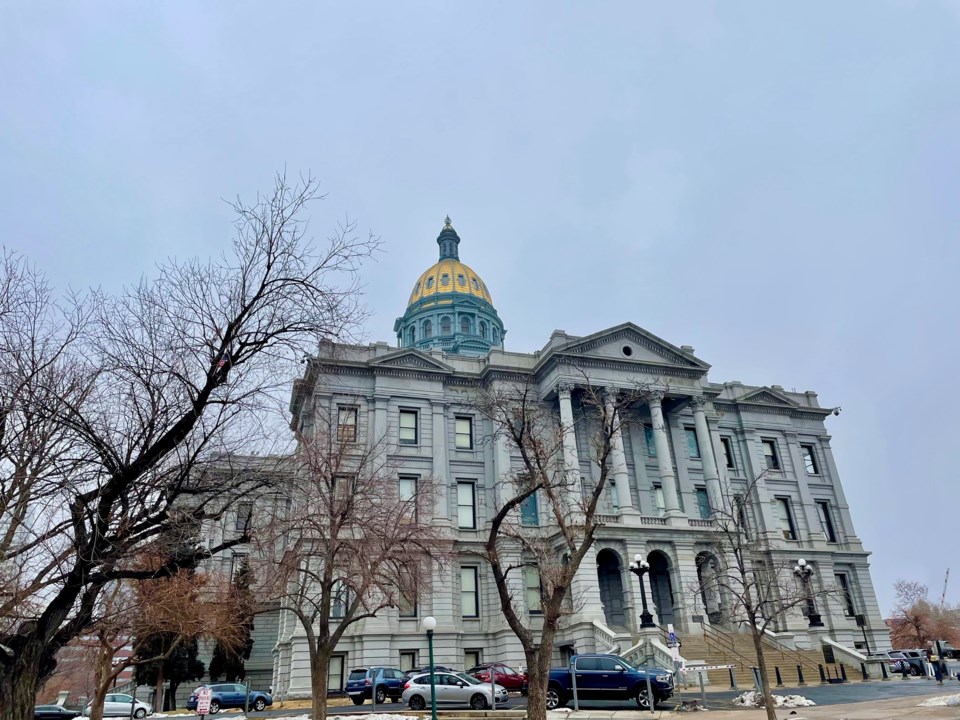DENVER | Coloradans are one step closer to being able to watch all of their local government meetings and submit comments online, rather than in-person.
On March 20, the state House Transportation, Housing and Local Government Committee approved House Bill 1168 on an 8-2 vote. The measure now moves to the House Appropriations committee to review the financial impact of the bill. A hearing date has not yet been set.
The bill seeks to require that local governments live-stream their meetings, making them more accessible for people with disabilities as well as other people who can’t or don’t want to attend the meetings in person.
An amendment stating that local governments with less than 1,000 voters, such as those in rural communities, are exempt from following this proposed bill, was added to the bill.
The bill is sponsored by committee chairperson state Rep. Meg Froelich, D-Englewood, and state Rep. Manny Rutinel, D-Adams County.
“We are almost 30 years after the Americans with Disability Act and three years after COVID demonstrated how remote participation is implementable and efficient,” Froelich said. “Individuals who can’t attend [meetings] in person should be able to follow the proceedings and testify as if they were able to attend in person.”
Most of those who spoke during public comment supported the bill. Some who came to the hearing sat in motorized wheelchairs but had to use their feet to open the door leading to the committee room as there were no handicap automatic door opener inside. Others testified virtually.
Maureen Welch, an Aurora resident and parent to a student at Cherry Creek School District, said she supported the bill. She spoke about how the school district, until recently, had not live-streamed their meetings. The school district has often been criticized for not live-streaming board meetings like other metro-area school districts. However, they will begin to live-stream portions of their meeting starting in April officials said last week.
Welch also said that she was unable to participate remotely in the Colorado State Board of Education meeting because they didn’t allow virtual public testimony. The state board does, however, live-stream meetings.
Those who didn’t fully support the bill said they wanted to see amendments that address their concerns.
Rachel Amspoker, attorney for the Colorado Association of School Boards, said she was concerned about litigation. She said that “in recent years, school districts have been faced with lawsuits from people who are not connected or harmed from open meeting law violations.”
This concern was echoed by Heather Stauffer, legislative representative for the Colorado Municipal League. Amspoker and Stauffer did not specify any recent examples of this happening when they spoke to the committee Wednesday.
Last year, Matt Roane filed a lawsuit against the Elizabeth School District, accusing them of violating open meeting law. The school district moved to dismiss the lawsuit because Roane, who doesn’t live in the school district, “had not explained how he was actually injured by the Board’s failure to comply,” according to the American Civil Liberties Union of Colorado.
Roane has been named in stories about a flurry of similar lawsuits in other places in Colorado.
Stauffer also said that “local governments have increasingly experienced disruptive and anti-semitic attacks not related to public business….this is in no way tied to the folks who are using these remote systems due to a disability. But this would open it up to everyone and so we have concerns about that.”
State Rep. Andrew Boesenecker, D-Larimer County, said disruptions can happen in-person as well. He spoke about a city council in his district that had to “shut down” a couple weeks ago because of unruly, in-person public comment. He did not specify what was said during that meeting.
In February, the Aurora City Council went into recess after rowdy protesters began chanting “ceasefire now” amid the war in Gaza. Also in February, Colorado Community Media reported that the Castle Rock Town Council banned people from making public comments remotely, citing concerns about potential hate speech.
“Is there maybe a better conversation to be had about how you structure public comment inside of a public meeting to make sure that agenda items are discussed appropriately,” Boesenecker said. “Because I think that’s quite frankly the responsibility of us, is to be able to accept that comment from whomever, and just sit there and listen.”



